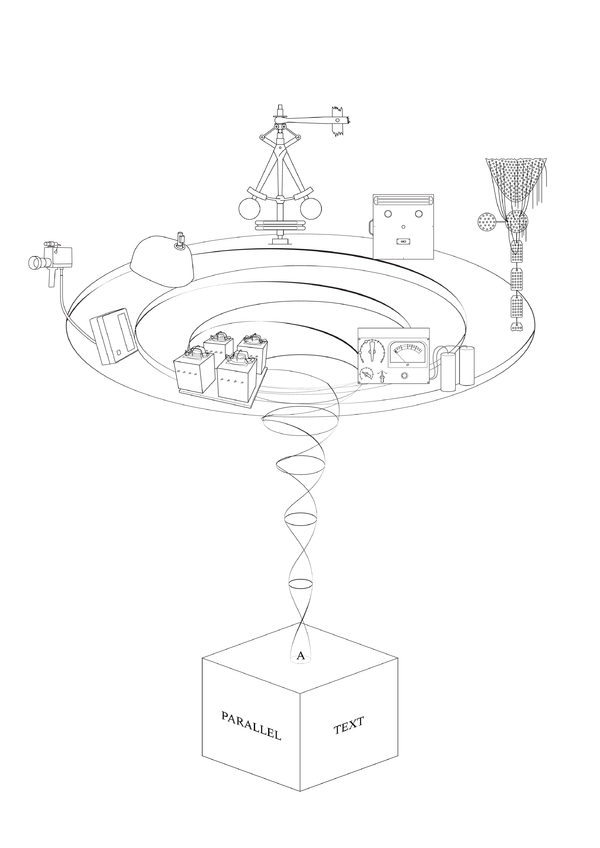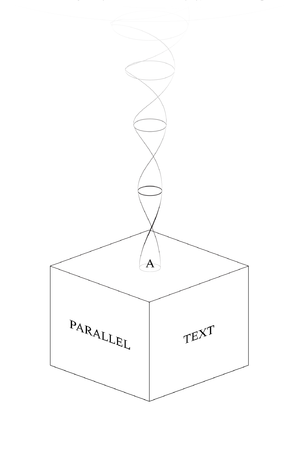Notes on Method

A PARALLEL TEXT
A Parallel Text runs throughout the The Fabulous Loop de Loop. The text helps situate the The Fabulous Loop de Loop within a broader historical and critical context. Parallel Text comprises a series of essays, annotations, extracts and notes. Links to A Parallel Text are provided in the margins of The Fabulous Loop de Loop.
METHODOLOGY
In The Fabulous Loop de Loop I do not introduce contemporary commentary and analysis of this discourse. Although my tools of interpretation in the Fabulous loop de Loop are contemporary (I draw on the theoretical models used by Katherine N. Hayles, Lydia H. Liu, John Johnston and Friedrich A. Kittler, for instance) the Fabulous Loop de Loop does not give explicit reference to them (although they are always appropriately cited). I have put space aside in A Parallel Text for this.
A Parallel Text is one stage of abstraction removed from The Fabulous Loop de Loop. It extends the discourse into the contemporary realm. Here I take the opportunity to reflect on more recent analysis of the shifting terrain of this discourse.
I also take time to consider issues which are outside the range of The Fabulous Loop de Loop itself. These include: cybernetics as an instrument of political reason in the post WWII era and the influence of cybernetics on “post-modern/ post-structuralist” theory.
The Fabulous Loop de Loop examines a discourse of cybernetics as it developed over a century. On reading these various texts, and sticking as closely as possible to the context which produced them, it becomes apparent that all the writers discussed here produce a different epistemological map to describe the territory they inhabit. It becomes apparent that, far from there being a stable narrative of how cybernetics came into being, we see a number of overlapping, entangled and conflicting claims, which in their articulation, produce this discourse.
It is a terrain in which the different protagonists look forward to different horizons and back to different paths of entry. The protagonists in The Fabulous Loop de Loop all adjust to the implications of an epistemological shift. They speak of its past and speculate on its future. They speak from different disciplines as engineers, philosophers, anthropologists, experimental psychologists, psychoanalysts, artists and writers. All of them attempt to accommodate the implications of a new conception of negative entropy, as the model of the regulation and conservation of energy (entropy) shifts to a model of the distribution of information (negative entropy).
To some the news comes as a revelation: Samuel Butler recognises the equivalence between mind and matter; Gregory Bateson develops a wholistic cybernetic meta-theory. To others it comes as a shock: Lacan recognises that the Freudian scheme of dynamic psychology needs to be rebuilt from its foundations; William Burroughs understands that literature is revealed as a code that can be scrambled and mixed with other media (that noise can constitute information). All are dealing with the same set of premises and yet all describe a different reality. Here I stress the performativity of this discourse as it feeds information about itself into itself to allow adaptation.
